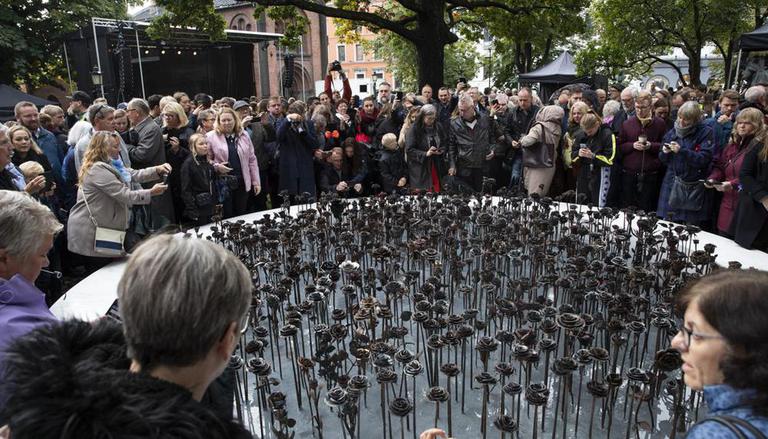Norway has begun commemorations marking 10 years since far-right attacker Anders Behring Breivik killed 77 people in the worst act of violence in the country since World War II.
On July 22, 2011, Breivik detonated a car bomb outside the prime minister’s office in the capital, Oslo, killing eight people. Later the same day, he headed to Utoya island dressed as a police officer and carried out a shooting spree at a Labour Party youth camp, killing 69 people, most of them teenagers.
Church bells rang out across Norway on Thursday to mark 10 years since Anders Behring Breivik, a far right extremist, killed 77 people, most of them teenagers at a youth camp.
In a solemn speech that capped a day of remembrance, King Harald said Norway must teach future generations about the events of July 22, 2011.
Breivik, a white supremacist, who wanted to bring about a fascist revolution through violent means, detonated a car bomb outside the prime minister’s office in Oslo, killing eight, before driving to Utoeya island and shooting 69 people at a Labour Party youth camp.
“Certain dates are written into our country’s story as defining days. Days, which in different ways, have contributed to making us who we are today,” the king said at a televised memorial concert.
The nation owed it to all those killed, to their relatives and to itself to pass on the lessons of July 22 to future generations, he added.
“At the same time, we must acknowledge that we as a society have not done nearly enough to see, to help, to carry the burden together – and to counteract the dark forces.”
Events started outside what was once the prime minister`s office – now still an empty shell. People passing by beyond the secured perimeter stopped to listen and some hugged as the names of the victims were read out.
“It hurts to think back to that dark day in July ten years ago. Today, we mourn together. Today, we remember the 77 that never came home,” Prime Minister Erna Solberg said at that event.
Breivik, 42, is serving a 21-year sentence, which can be prolonged indefinitely if he is deemed a continued threat to society.
Debate over the attacks has shifted over the years. Survivors, many of whom were teenagers at the time, are now determined to confront the far-right ideology which was a catalyst for the attack.
This is a departure from Norway’s response at the time, which emphasised unity and consensus.
The service, which was broadcast on television, was attended by Prime Minister Erna Solberg, survivors and relatives of the victims, political leaders and members of Norway’s royal family.
Outside the guarded area, passersby stopped to listen, and some hugged as the names of the victims were read out.
